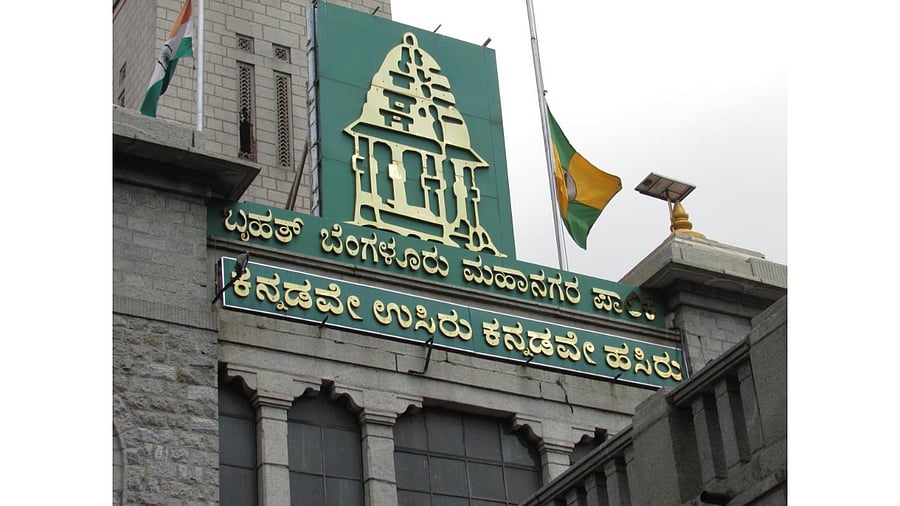
Bengaluru city has got a poorly designed and inadequate law – the Bruhat Bengaluru Mahanagara Palike Act, 2020. This is limited to facilitating municipal governance as the desired objectives cannot be realised from this Act, unless certain other structural reforms relating to the corporation authorities are incorporated in it.
The Act has failed to achieve the desired objective of improving the decentralisation and integration of public participation at various levels of municipal governance and to ensure efficient decision-making by the corporation authorities specified for BBMP.
Specifying the Mayor, Ward Committee and Area Sabha as corporation authorities may not be required. The Mayor exercises the collective power of the BBMP Council as per Article 243-S of the Constitution and does not comprise an authority in his/her individual capacity.
The Chief Commissioner exercises his powers as per Section 64 of the Act. Specifying that inter-zonal matters must be referred to the Chief Commissioner by the Zonal Commissioner for a decision is incorrect. The respective Zonal Committees must place the matter before the BBMP Council for a decision. The Act specifies Zonal Committee statutorily as a corporation authority. The Zonal Committee can be construed as Ward Committee.
Ward Committees and Area Sabhas need not be specified as corporation authorities as they comprise of non-councillors. The responsibility of governance is only with the directly elected councillors of BBMP as per the mandate of Article 243-S.
The role and responsibilities of the Ward Committee should be limited to seeking community participation and eliciting their considered views for ward-level development. However, Area Sabha need not be specified as corporation authority as it consists of all voters in an area demarcated within a ward. Assigning any statutory powers to Area Sabha as a corporation authority may be imprudent.
Constituency Consultative Committees: These committees, headed by the MLA of each constituency, have not been specified as corporation authority, but are assigned with some administrative powers to be exercised by them. The role and responsibilities of these committees should not facilitate an MLA to directly interfere with the day-to-day administration of BBMP as it would defeat the purpose of autonomy of the local self-government.
Mayoral Executive Committee: To facilitate effective and collective decentralised governance, instead of the Mayor, a new layer of corporation authority between the BBMP Council and the standing committees/zonal committees called the Mayoral Executive Committee, headed by the Mayor and consisting of the chairpersons of all standing committees/zonal committees as members, and the Chief Commissioner as an executive member, is recommended.
This Mayoral Executive Committee can exercise all executive powers of the BBMP Council except the passing of the budget. The Mayoral Executive Committee is not conceived under the BBMP Act, 2020; so, it is a new suggestion.
The Mayoral Executive Committee can meet as many times as is administratively required for transaction of business assigned to it. Since this committee can meet frequently, it will be instrumental for ensuring effective and speedy decision support system in the BBMP.
Mayor’s term: According to the Act, the Mayor will have a term of two-and-a-half years. The Mayor could be made more accountable and allowed to re-contest for a second term, ending with the five-year term of the BBMP Council. The removal of the Mayor through a no-confidence motion could be facilitated, like in the Karnataka Municipalities Act, 1964.
Further, enabling an extension of term of the Mayor to five years, co-terminus with the BBMP Council, will imply longevity of his/her tenure for better governance. It will make the Mayor more accountable and facilitate his responsiveness for public administration. Providing for no-confidence motion for removal of the
Mayor democratically will enhance credibility of the institution of Mayor.
BBMP Elections
To fulfil the mandate of the Constitution under Article 243-U, elections to the BBMP Council ought to have been held before the end of the term of the previous BBMP Council, that is, before September 2020.
Keeping in view this constitutional mandate, the state government must complete all administrative actions to notify the ward delimitation for the BBMP by carving out the BBMP area into a minimum of 225 wards and a maximum of 250 wards, either in the existing boundary or in the extended boundary as per the prevailing Census 2011 population figures, along with reservation of wards in the state gazette forthwith. This will facilitate proper conduct of elections to the BBMP Council by the State Election Commission.
The state government must also incorporate zonal demarcation in the ward delimitation notification to facilitate constitution of the Zonal Committees as they are specified as corporation authorities statutorily.
The Act, through Section 58, has omitted reservation to the categories of BCA and BCB for the posts of Mayor and Deputy Mayor. In view of the uniform reservation policy applicable to all municipal corporations in the state to reserve the posts of Mayor and Deputy Mayor to BCA and BCB categories so far, the state government should take cognisance of the same and take appropriate action well in advance as the election of Mayor and Deputy Mayor is an integral part of the constitution of the BBMP Council.
Overall, the Act is an inadequate and fragmented law. The development of a new, comprehensive legislation for governing the metropolitan city of Bengaluru for both municipal and metropolitan governance is the utmost need of the hour. This must be pursued in right earnest as early as possible. A piecemeal approach by bringing out amendments here and there will not serve any purpose.
With the new Act, the demand of Bengaluru’s citizens for a robust metropolitan governance legislative framework remains a distant dream.
(The writers are Directors, Centre for Urban Governance Studies & Policy Research)